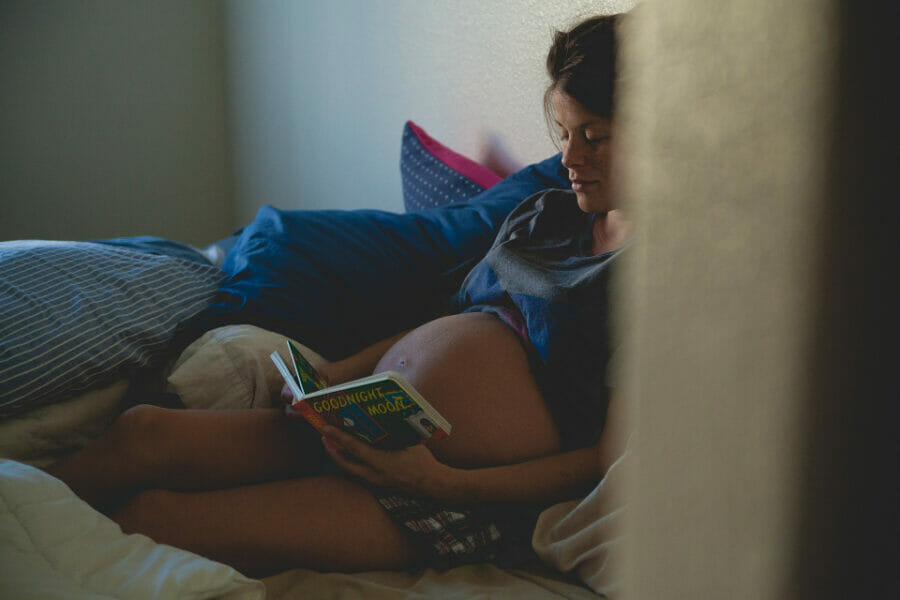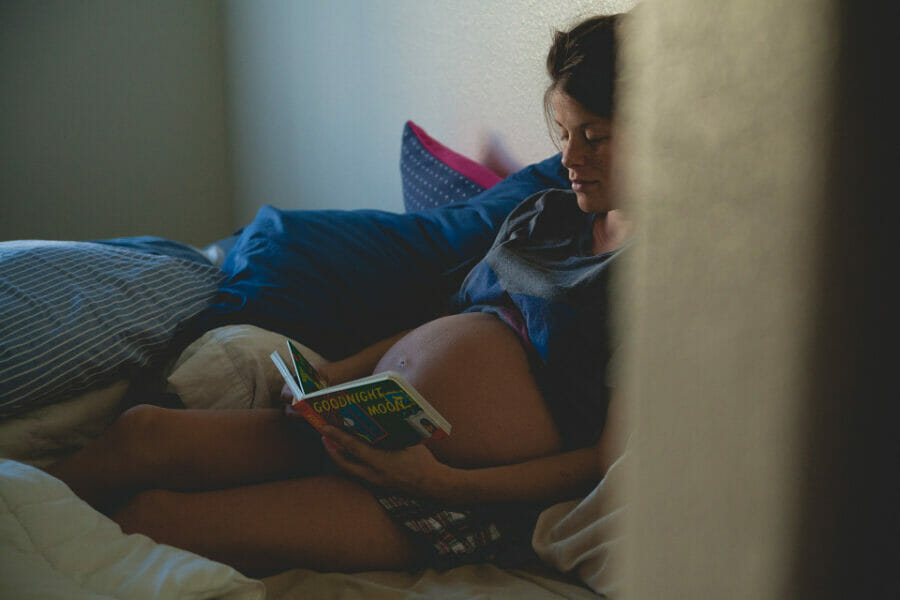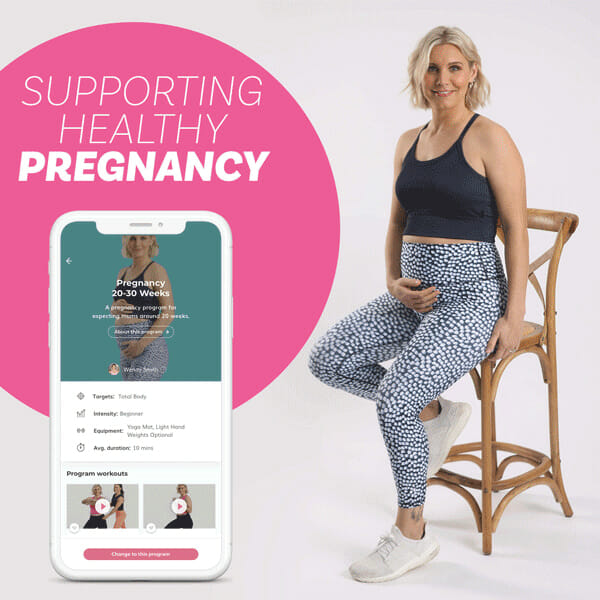Mental health during pregnancy – how to look out for it
Tess Doig is a Fertility Naturopath and one of our amazing Healthy Mummy wellness experts. In a recent podcast, she discusses mental health during pregnancy.
Pregnancy brings a mix of feelings, and not all of them are good.
If you’re feeling worried, you’re not alone. Worry is common, especially during a woman’s first pregnancy or an unplanned one. It can be even harder if you’re dealing with depression or anxiety.
For your health and your baby’s, take care of yourself as much as you can and we’re here to help. No woman should have to walk that road alone. Tess shares with us some amazing tips to help get us on the right path.

1 in 5 pregnant women experience anxiety or depression
Mental health in pregnancy is such an important topic that needs more discussion in general.
It can affect anyone and no two pregnancies are the same and so it can come as a shock to some women who were fin the first time around and not so in a subsequent pregnancy. In fact one in five women will experience anxiety or depression in their pregnancy or following birth.
But just because it’s common doesn’t mean it’s okay to ignore how are you are feeling.
There is so much at going on within the body during pregnancy and postpartum and in the way that the brain is working and the body is functioning.
Your body literally shrinks in pregnancy to allow for new pathways in the brain. Those changes to the brain can make a woman feel quite shaky, she almost doesn’t know who she is anymore and so it’s a massive shift.
The only other time that this happens is during the teenage years. The upgrade for the brain can make people feel really unstable. It’s also a huge hormonal shift that happens during pregnancy along with postpartum.

Oestrogen and progesterone during pregnancy can affect brain function
We have huge levels of oestrogen and progesterone, which for some women can make them feel really good during the pregnancy period but what happens two to three days after birth is those levels go from the absolute highest point to the absolute lowest.
It’s that huge hormonal change that makes that postpartum period a really vulnerable time for a woman’s mental health. Oestrogen and progesterone support our happy hormones like serotonin it puts you at higher risk of anxiety and depression.
It’s good to watch out for red flags so we can monitor these potential shifts in our friends and loved ones. It’s normal to experience the post partum baby blues, with the hormonal shift there will be a certain level of tears and emotion to overcome.
If this prolongs for more than one to two weeks and begins impacting on a new mums daily life so that she’s not wanting to go anywhere or see anyone.
It can be a really hard thing to pinpoint because there is a narrative or expectation that after a baby you are going to feel tired, a little depressed and so it’s so often undiagnosed.
Then there’s the opposite narrative that’s fed to us via social media that you should feel fantastic. So the distinction between what is normal and what is not is very blurred.
Always check in with any mother that you see because so much of the focus tends to just be on the baby. Often this attention leaves no room for the mother and how she may be feeling. And the first few weeks to six months is so important.
During pregnancy often mothers will be inclined to hide feelings of anxiety or depression because it is not as common and certainly there’s an expectation that you should be feeling nothing but excitement and expectation.
Nutritional deficiencies during pregnancy may contribute to low mood

The biggest nutritional deficiencies that can be seen to impact pregnancies and postpartum are deficiencies in zinc, iron, magnesium and vitamin D along with our omega 3 fatty acids.
And these nutrients are so crucial for how our brain is functioning and the way our thyroid functions as well. Thyroid issues are linked to depression and anxiety and commonly go under-diagnosed in pregnancy and postpartum because the testing isn’t as thorough as it should be.
It’s important to get thorough testing post partum on these deficiencies and thyroid function even if it means you are out of pocket, and especially if you have a family history of thyroid issues. T
he symptoms of a low thyroid are fatigue, depression, feeling cold and anxious. The thyroid works very hard in pregnancy so it is vulnerable postpartum and the nutrients it uses in pregnancy are common deficiencies such as zinc and iodine.
The symptoms really cross over so that many women are also diagnosed with depression and then found to just have really low thyroid or thyroiditis.
The thyroid can also be functioning too fast, which will create feelings of anxiety or insomnia. Not what you need with a newborn baby! You may feel like superwoman for a while like you can survive on no sleep at all or hyper vigilance, but that crash always follows.

Again, it’s tricky as there is a normal level of hyper vigilance in the early days postpartum but if it continues more than a few weeks after birth there is potentially an issue that needs addressing. T
his is a good time to check in with your health care provider. A good tip would be to make a note to get your nutrients checked as well as full thyroid at your six week follow up appointment with your GP or care provider.
A recommendation is to do the same at three to four and also six months postpartum. The follow on care postpartum is really lacking when you consider the amount of checks we have during pregnancy.
Really, pregnancy is just round one! Postpartum isn’t the main discussion and yet it is often the most challenging part. It can be shocking and is almost certainly completely life changing.
Seek help or speak with your midwife or GP

The check-ins are so important. When a woman isn’t feeling in her best frame of mind it can be a big push and so we all need to be doing the check ins on their behalf.
Make the offer of minding a baby for a friend so they can make their necessary check in appointments. Western women aren’t the best at asking for help in the first place especially not when you’re in a vulnerable state.
The expectation of being the perfect mother or being able to cope can be crippling and it’s all because no one is talking about the issues enough.
There may be shame or a lack of connection to the baby, which is never something they want to share openly. We share a lot of the proud moments on social media but we don’t tend to share the harder moments or the dark thoughts.
In fact, there are some great help lines for support for those difficult conversations such as PANDA. A risk seems to be the lack of support that women feel so it’s good to know what’s out there.
If you are feeling like this through pregnancy or post partum know that there can be nutritional deficiency issues, hormonal issues that are leading to where you are with your mood. A first step in to go and get your bloods done to test for iron, vitamin D, zinc, thyroid and don’t forget to EAT! We often neglect ourselves at a time when we need to be looking after ourselves the most. Eat three meals a day, and try to get out in the fresh air when you can for a short walk.
Find your inner calm with our 3 day anxiety program
Our Anxiety Program looks at the whole picture and allows you to nurture your body with mood-boosting foods while using simple breathing and movement techniques to find a sense of calm in your busy world.
Our comprehensive 3 day program, will provide you with:
- Meal plans for simple nutritional swaps to improve physical wellbeing, including recipes for 3 main meals & 3 healthy snacks per day
- Guided breath-work programs designed to decrease heart rate, improve blood flow and improve mental clarity to combat the negative effects of stress and anxiety
- Guided Yoga, Pilates & Meditations to regulate brain chemicals and boost endorphins through mindful movement so you’ll feel better in your body
- Podcasts from psychologists, nutritionists and naturopaths on understanding anxiety, it’s connection to diet and on regulating your inner dialogue
- Info-blogs from our expert Wellness Team, to help you understand where anxiety comes from and strategies to get back on top
- Easy to follow 3 day program guides you on when to take each step to make things super simple and effective
- Everything at your finger tips you can easily access the program from your Healthy Mummy account on your smart device
ACCESS YOUR THREE DAY PROGRAM HERE
JOIN The Healthy Mummy New Mum & Pregnancy Support Group | Facebook
pregnancy










